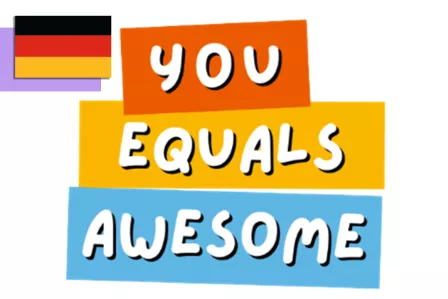The German Safer Internet Centre has celebrated 30 years of successfully running a programme in which young people who are trained youth counsellors volunteer to operate a helpline to help their peers.

For three decades, the "Youth counselling youth" programme has provided a reliable support point of contact for young people who need help. The initiative follows a peer-to-peer approach: every Saturday, trained youth counsellors aged 16 and older offer anonymous and free support via the Child Helpline (116 111). This peer-to-peer counselling fosters trust and enables open exchanges where young people connect as equals and share their worries. In 2023 alone, nearly 500 volunteer counsellors conducted over 4.000 counselling sessions.
Over the years, the peer-to-peer model has proven to be highly beneficial. Young people often find it easier to confide in their peers, who are more likely to understand their life experiences and challenges. Whether it’s school-related problems, family stress, friendship conflicts, online issues or first heartbreaks, the young counsellors provide empathetic and understanding support.
"I meet so many different people and hear their stories over the phone. They share sides of themselves that not everyone gets to see, and I truly value that. If I can do something to help them, it’s just wonderful!" says one youth counsellor involved in the project.

This programme does not only provide a safe space for young people to express their concerns but also empowers the young volunteers themselves, fostering their sense of responsibility and personal growth. The counsellors undergo intensive training to prepare for the challenges of counselling sessions.
"We are proud to have been offering a trusted counselling service from youth for youth for 30 years. Our special thanks go to the many young counsellors whose dedication makes this project possible and provides valuable support to so many in need," says CEO of Nummer gegen Kummer e.V., Anna Zacharias.
To honour the valuable work of our counsellors, they receive a personal thank-you letter along with a sticker.
Visit us online to find out more. You can also follow us on LinkedIn, Instagram, Facebook and TikTok.
Find more information about the work of the German Safer Internet Centre, including its awareness raising, helpline, hotline, and youth participation services, or find similar information for other Safer Internet Centres throughout Europe.
The German Safer Internet Centre has celebrated 30 years of successfully running a programme in which young people who are trained youth counsellors volunteer to operate a helpline to help their peers.

For three decades, the "Youth counselling youth" programme has provided a reliable support point of contact for young people who need help. The initiative follows a peer-to-peer approach: every Saturday, trained youth counsellors aged 16 and older offer anonymous and free support via the Child Helpline (116 111). This peer-to-peer counselling fosters trust and enables open exchanges where young people connect as equals and share their worries. In 2023 alone, nearly 500 volunteer counsellors conducted over 4.000 counselling sessions.
Over the years, the peer-to-peer model has proven to be highly beneficial. Young people often find it easier to confide in their peers, who are more likely to understand their life experiences and challenges. Whether it’s school-related problems, family stress, friendship conflicts, online issues or first heartbreaks, the young counsellors provide empathetic and understanding support.
"I meet so many different people and hear their stories over the phone. They share sides of themselves that not everyone gets to see, and I truly value that. If I can do something to help them, it’s just wonderful!" says one youth counsellor involved in the project.

This programme does not only provide a safe space for young people to express their concerns but also empowers the young volunteers themselves, fostering their sense of responsibility and personal growth. The counsellors undergo intensive training to prepare for the challenges of counselling sessions.
"We are proud to have been offering a trusted counselling service from youth for youth for 30 years. Our special thanks go to the many young counsellors whose dedication makes this project possible and provides valuable support to so many in need," says CEO of Nummer gegen Kummer e.V., Anna Zacharias.
To honour the valuable work of our counsellors, they receive a personal thank-you letter along with a sticker.
Visit us online to find out more. You can also follow us on LinkedIn, Instagram, Facebook and TikTok.
Find more information about the work of the German Safer Internet Centre, including its awareness raising, helpline, hotline, and youth participation services, or find similar information for other Safer Internet Centres throughout Europe.
- helplines peer to peer well-being
Related content
- < Previous article
- Next article >












